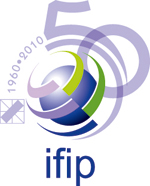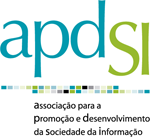Keynote Speakers
 |
Saul GreenbergKeynote Date: Friday, 9th Title: Proxemic Interactions: the New Ubicomp? |
| Abstract: In the everyday world, much of what we do as social beings is dictated by how we interpret spatial relationships. This is called proxemics, and is part of the glue that comprises our natural social fabric. What is surprising is how little people's expectations of spatial relationships are used in interaction design within ubiquitous computing (UBICOMP) ecologies, i.e., in terms of mediating people's interactions with surrounding digital devices such as digital surfaces, mobile phones, tablets, computers, and other information appliances. Proxemic interaction imagines a world of devices that have fine-grained knowledge of nearby people and other devices - how they move into range, their precise distance, their identity and even their orientation - and how such knowledge can be exploited to design interaction techniques. Just as people expect increasing engagement and intimacy as they approach others, so should they naturally expect increasing connectivity and interaction possibilities as they bring themselves and their devices in close proximity to one another and to other things in their everyday ecology. In this keynote, I will describe and illustrate proxemic interactions as realized in several projects in my laboratory. My goal is to advocate proxemics as a more natural way of mediating inter-entity interactions in Ubiquitous Computing (UBICOMP) environments, while still cautioning about the many pitfalls around its use. |
|
| Bio: Saul Greenberg is a Full Professor in the Department of Computer Science at the University of Calgary. While he is a computer scientist by training, the work by Saul and his talented students typifies the cross-discipline aspects of Human Computer Interaction, Computer Supported Cooperative Work, and Ubiquitous Computing. He and his crew are well known for their development of: toolkits enabling rapid prototyping of groupware and ubiquitous appliances; innovative and seminal system designs based on observations of social phenomenon; articulation of design-oriented social science theories, and refinement of evaluation methods. His research is well-recognized. He holds the iCORE/NSERC/Smart Technologies Industrial Chair in Interactive Technologies. He also holds a University Professorship, which is a distinguished University of Calgary award recognizing research excellence. He received the CHCCS Achievement award in May 2007 and was also elected to the ACM CHI Academy in April 2005 for his overall contributions to the field of Human Computer Interaction. Saul is a prolific author who has authored and edited several books and published many refereed articles, as listed at http://grouplab.cpsc.ucalgary.ca/papers/ . He is also known for his strong commitment in making his tools, systems, and educational material readily available to other researchers and educators. His new book will be available shortly: "Sketching User Experience: The Workbook, co-authored with Sheelagh Carpendale, Nicolai Marquardt and Bill Buxton (Morgan Kaufmann Press). |
|
SUPPORTERS

IMPORTANT DATES
Conference
September 7th to 9th, 2011
Workshops and Tutorials
September 5th and 6th, 2011
Early-bird registration
July 15th, 2011
Short paper submission
April 7th, 2011
Full paper submission
January 24th, 2011 (paper)
January 10th, 2011 (abstract)














